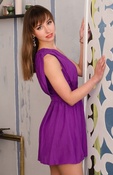This article needs additional citations for verification. The age of the custom of applauding is uncertain, but it is widespread among eastern european speed dating london cultures. Within each culture, however, it is usually subject to conventions. The ancient Romans had set rituals at public performances to express degrees of approval: snapping the finger and thumb, clapping with the flat or hollow palm, and waving the flap of the toga.

In Christianity, customs of the theatre were adopted by the churches. According to these characteristics, the applause can be classified into the following categories: Booing, Absence of applause, Weak, Collective, Intense, and Ovation. Well-recognized politicians, actors, and musicians often receive applause as soon as they first appear on stage, even before any performance activity has transpired. This accolade is given to indicate admiration for their past achievements, and is not a response to the performance the audience is attending. This rule may be relaxed to permit applause in honor of the bride and groom when the newly married couple may turn to be greeted by the congregation following the exchange of vows. Indiscriminate applause is widely considered a violation of classical music concert etiquette: Applause is discouraged between movements, reserved instead for the end of the entire work.
There have been a number of attempts to further restrict applause in various circumstances, e. By contrast, opera performances have traditionally been interrupted by applause at the end of an aria or certain other set pieces, and many opera scores reflect a break in the music at places where applause would typically occur. In most performances, if spectators really enjoy a performance, mainly in classical performances, they may also accompany by throwing flowers onstage. On some occasions, applause occurs in the middle of an event.
Extended applause at the conclusion of an event, usually but not always resulting in a standing ovation, implies approval above and beyond ordinary measure, and compels the performer to return in acknowledgement and at times proceed to an encore. Golf claps are sometimes used at other events to heckle or to show sarcasm. Likewise, string musicians of an orchestra use the bobbing their bows in the air or gently tapping them on their instruments’ strings as a substitute for applause. Wind section members will generally lightly stamp their feet or pat one hand on their leg to show approval to a conductor or soloist, while percussionists often rap drumsticks together. In some countries, applause may be used to indicate respect for a recently deceased person in some instances, such as at a funeral procession. In Deaf culture, Deaf audiences will use a more visually expressive variant of clapping.
Instead of clapping their palms together, they raise their hands straight up with outstretched fingers and twist their wrists. In German-speaking countries, it is customary for university students to rap their knuckles on the desks after each lecture. The same technique is used in German-speaking countries to express approval at meetings. In the Parliament of the United Kingdom, clapping is generally prohibited.
In various countries, airplane passengers often tend to applaud the landing upon completion of a flight and when they have felt the plane’s wheels’ touchdown and have run a short but satisfactory course down the runway. Another type of “slow handclap” is used as a dramatic device, often forming the conclusion of dramatic turning points in films. After some dramatic speech, one audience member claps slowly, then another, and then a few more, until the trickle of clapping gives way to roaring applause, often ending in a standing ovation. Slow handclaps are used widely in yet another popular dramatic device, this time both beginning and ending with a single actor. The clapping is usually accompanied by ironic dialogue such as “Well done”, or “Bravo” to indicate disbelief of or show scorn for another character’s comments. Böttiger, Über das Applaudieren im Theater bei den Alten, Leipz.
Can applause really replace the minute’s silence? FAQ: History of Visual Applause for the Deaf”. Archived from the original on 2014-04-13. Aaron Wherry, Why do our MPs clap for each other so much?





